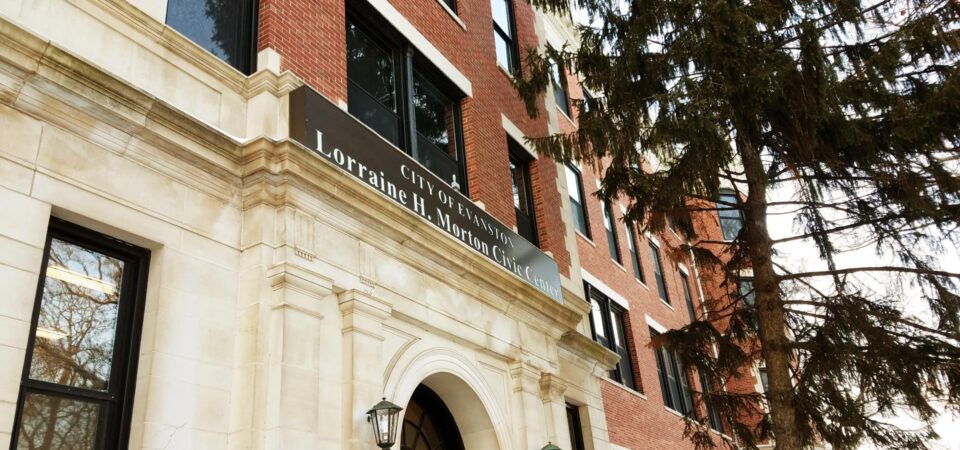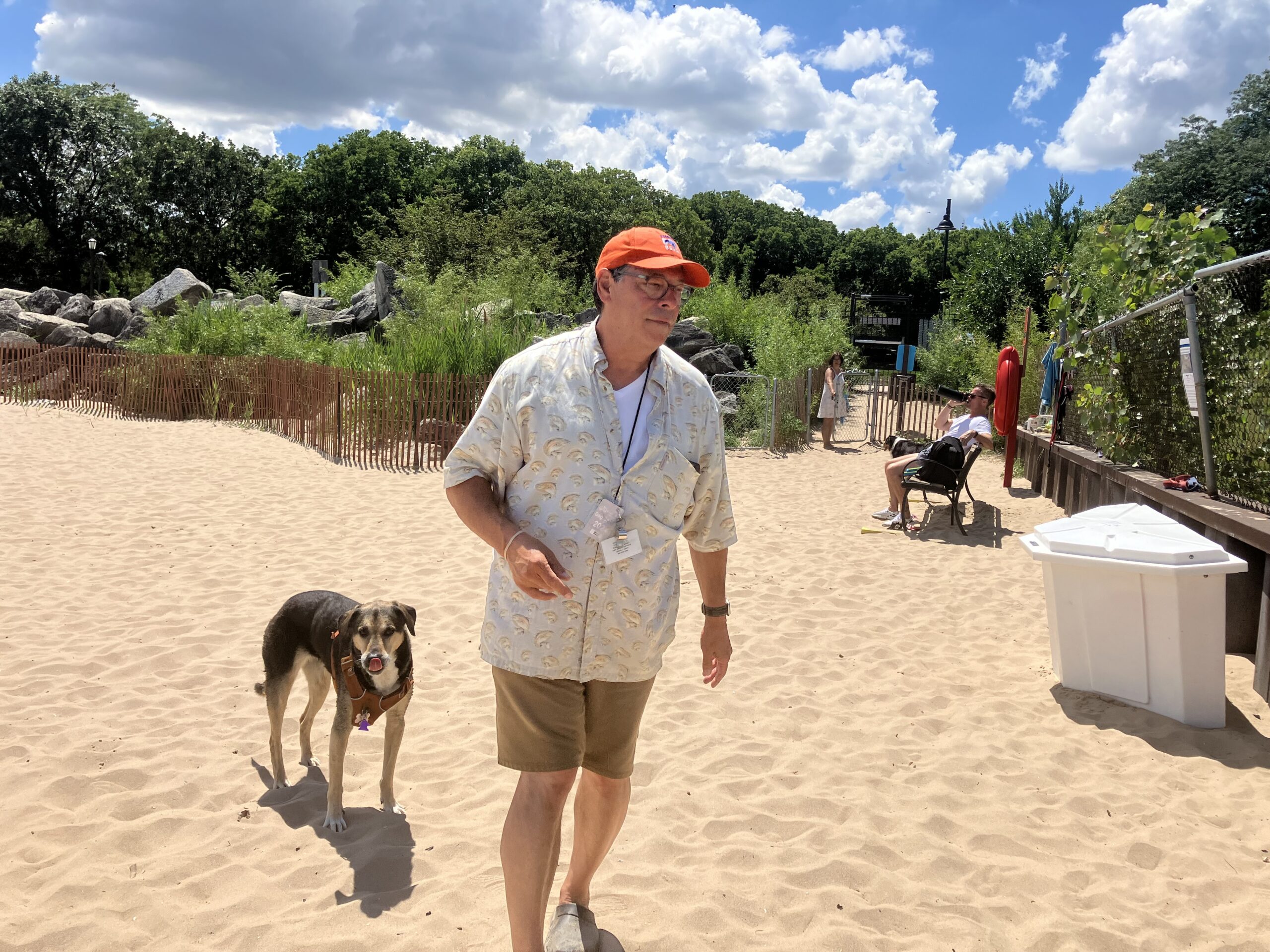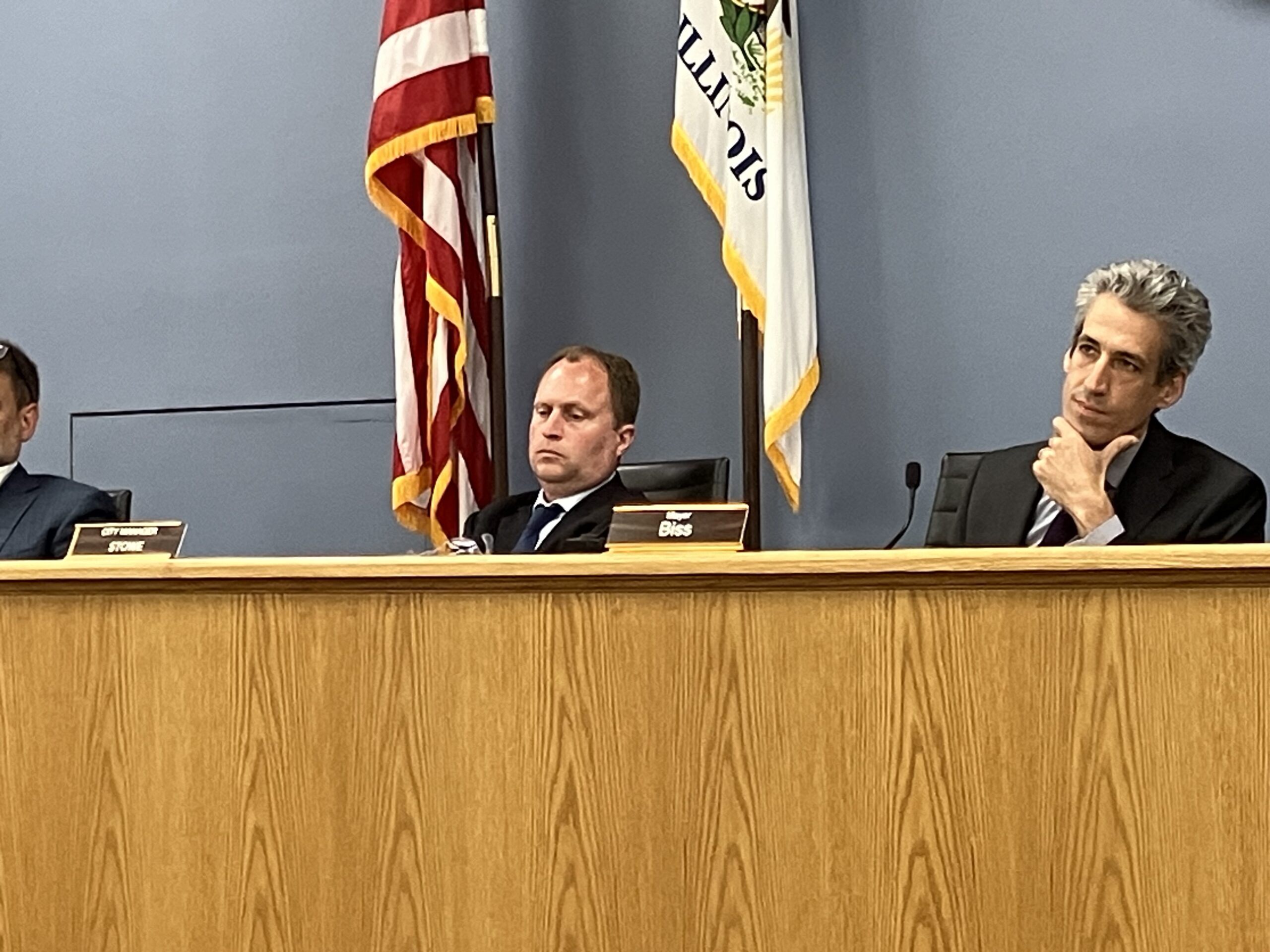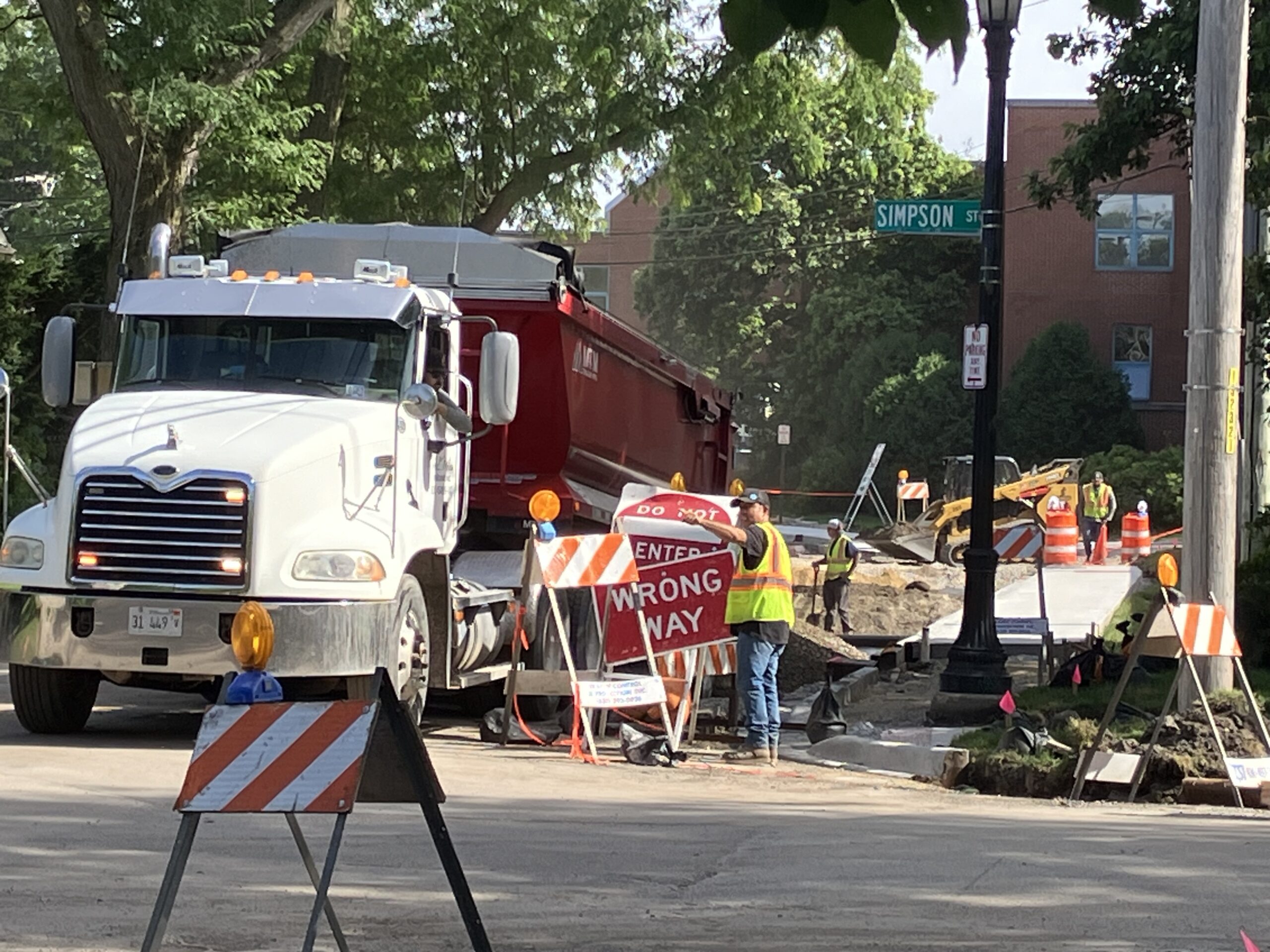Two Evanston buildings with long histories and passionate followings are scheduled to return to the spotlight on Monday, when Evanston City Council members are slated to discuss the next steps for the Civic Center and the Harley Clarke mansion, sites long in the public eye.
Plans for the Morton Civic Center, 2100 Ridge Ave., and the Harley Clarke Mansion, 2603 Sheridan Road, were in a relative deep freeze until recently, with much of the City Council’s attention focused on Northwestern University’s stadium proposal.
The items, though, will lead off the agenda of tonight’s City Council meeting, which starts at 6 p.m., in council chambers at the Civic Center, 2100 N. Ridge Ave.
Community members can also watch the meeting at cityofevanston.org/residents/city-television.
Exploring options
On the Civic Center issue which follows Harley Clarke on the agenda, city staff members are recommending the council approve a lease at 909 Davis St. for office space to house city functions.
The proposal has come without any open discussion, although Council Member Jonathan Nieuwsma (4th Ward) mentioned at a ward meeting Dec. 5 that the city was exploring options on the building, including the temporary relocation of city offices.
City officials, with backing from recent councils, have maintained that the Civic Center, a 112,000-square-foot building that was formerly a Catholic girls school, is too big for the city’s needs and lacks the features of a more modern office building, which would be more efficiently laid out.
Lease details
In her memo, city engineer Lara Biggs said the lease would commence Oct. 1, 2024, although the city could occupy the Davis building as early as June 1 of this year if construction is complete.
She said the building owner is providing a tenant improvement allowance of $5.9 million for space construction, in addition to expenses for furniture, fixtures, equipment, low-voltage cable and other improvements.
As to why proceed with relocating from the Civic Center now, she noted that discussions about renovating 2100 Ridge Ave. versus relocating City Hall operations to another location date back to 1998.
“Replacing any of the major building systems is such a large project that it will likely trigger building code requirements to bring the Civic Center into compliance with all modern building codes,” she wrote. “With such a major renovation of all the spaces, the building could be converted into a modern office building (or any of a number of other uses), but such a project would be extremely disruptive to City Hall operations.”
She continued later in the memo that “the purpose of this relocation on either a temporary or permanent basis is to forego the immediate necessary capital expenditures at the Civic Center while still providing a safe and efficient working environment for City staff and for community members accessing city services.”
Study findings
the Monday City Council meeting, officials are also expected to discuss the findings of a feasibility study performed by AECOM for the Civic Center as well as the police/fire headquarters, which she described as “woefully outdated.”
Officials have pressed the need for even more immediate action on that building, constructed in 1949, maintaining it doesn’t meet today’s policing needs.
“Like the Civic Center, the police/fire headquarters is woefully outdated and does not meet modern standards for holding cells, victim services support, ADA and overall security,” Biggs wrote. “The building is also substantially undersized, providing only 50% to 60% of the needed space to support the current operations.”
Back to square one
On Harley Clarke, city officials are slated to discuss the impressive number of responses they received to the release of Request for Expression of Interest (REI) issued in September of last year.
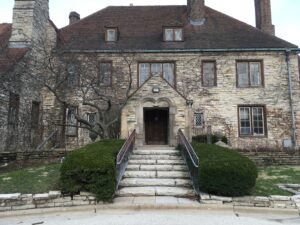
Council members returned to square one on the issue last January, when the Artists Book House board informed officials they were pulling out of the lease to convert the mansion into a book and literary center.
The issue, like the Civic Center, has been the subject of a referendum
Voters in 2018 gave overwhelming support to an advisory referendum calling for saving the building, which has sat largely vacant since 2015.
City planner Cade Sterling reported that the city received nine complete responses and an additional explanatory letter of interest to the REI.
“The responses affirm that Harley Clarke remains highly valuable and that private interest and investment can be mutually compatible with the public’s interest, including retention of public access and programming opportunities,” he wrote in a memo to council members. “The responses received included active forms of public-private partnership as well as mutually beneficial rehabilitation models capable of putting the property back into productive and tax-generating use.”
The groups responding included:
- Celadon Construction, proposing a wedding and event venue.
- Evanston Community Lakehouse and Gardens, a finalist when Artists Book House was chosen. The group is proposing a mixed-use community space, including for use as a cafe and in community and cultural events and educational programming.
- INDIGO, a holistic wellness center, cafe and educational/creative programming;
- Jens Jensen Gardens in Evanston, which has provided landscaping services at the mansion, for a Lighthouse Center for Native Habitat.
- One Community Museum and Gardens, for a museum focusing on history, nature, culture and social justice.
- Pikelet Holdings, for a wedding venue with a cafe and upper-story hotel.
- Ratio Architects, for a wedding venue and banquet hall.
- Senga Architects, for a cultural innovation hub, arts and research center, and a culinary and cultural commons.
- Evanston Conservancy Center, for conservation, education, advocacy and community space.
Based on the responses received, city staff members will be looking to the City Council in discussion Monday to give direction on the release of a Request for Proposal for the adaptive use and rehabilitation of the Harley Clarke Mansion that “mirrors the framework of the prior Request for Expression of Interest,” Sterling wrote.
Unlike the REI, the RFP “is a competitive procurement process that requires additional detail and evaluation criteria to effectively judge and score the responses received,” Sterling said.
City staff also want to know from council members whether they are comfortable including strategic disposition of the entire Harley Clarke property, or just a portion, as a potential ownership model within the RFP, he wrote.
.
